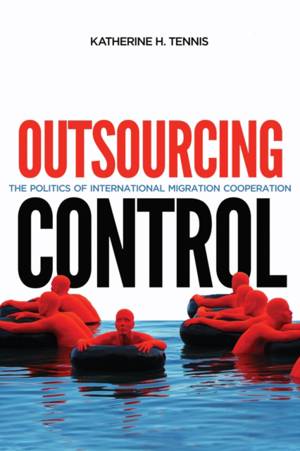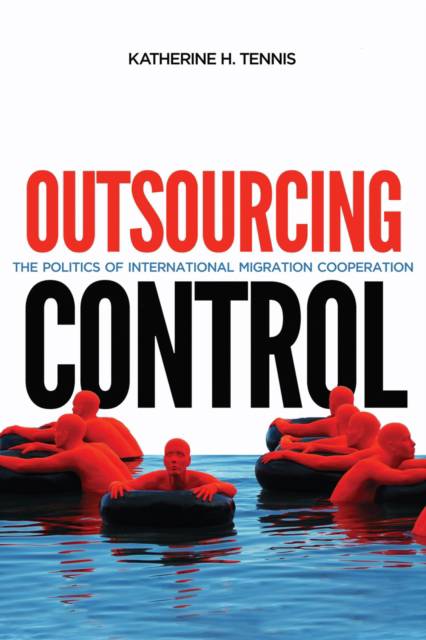
Door een staking bij bpost kan je online bestelling op dit moment iets langer onderweg zijn dan voorzien. Dringend iets nodig? Onze winkels ontvangen jou met open armen!
- Afhalen na 1 uur in een winkel met voorraad
- Gratis thuislevering in België vanaf € 30
- Ruim aanbod met 7 miljoen producten
Door een staking bij bpost kan je online bestelling op dit moment iets langer onderweg zijn dan voorzien. Dringend iets nodig? Onze winkels ontvangen jou met open armen!
- Afhalen na 1 uur in een winkel met voorraad
- Gratis thuislevering in België vanaf € 30
- Ruim aanbod met 7 miljoen producten
Zoeken
Outsourcing Control
The Politics of International Migration Cooperation Volume 13
Katherine H Tennis
€ 90,45
+ 180 punten
Omschrijving
When the European Union signed an agreement with Turkey in 2016 to end irregular migration from Syria using extraterritorial measures, the media framed it as a radical new low in migrant protection. Similarly, when then presidential candidate Donald Trump called on Mexico to "pay for the wall," critics argued it was an outlandish departure from established norms. Extraterritorial migration control arrangements of this type have become more visible in recent years, but they are not new. Katherine Tennis traces the emergence of these agreements in the Americas, Europe, and Southeast Asia. Grounded in case studies of negotiations between the United States and Haiti and Mexico, Italy's negotiations with Tunisia and Libya, and Spain's negotiations with Senegal, Outsourcing Control argues that while some countries - sharing an interest in ensuring orderly migration or recognizing the opportunity for kickbacks - have been happy to cooperate, others have objected, claiming wealthy destination states are exploiting them to do their dirty work. Tennis shows that these different responses depend on how the government in the partner country secures its power. Autocracies and strong democracies tend to cooperate, though for different reasons and in different ways. The most unpredictable partners are fragile democracies, who are prone to nationalism and populist backlash. The first comprehensive study to trace the emergence of extraterritorial migration control agreements across nations, Outsourcing Control reveals the international and domestic pressures behind the complex, brutal, and often deadly situation facing migrants today.
Specificaties
Betrokkenen
- Auteur(s):
- Uitgeverij:
Inhoud
- Aantal bladzijden:
- 344
- Taal:
- Engels
- Reeks:
Eigenschappen
- Productcode (EAN):
- 9780228004073
- Verschijningsdatum:
- 17/12/2020
- Uitvoering:
- Hardcover
- Formaat:
- Genaaid
- Afmetingen:
- 152 mm x 231 mm
- Gewicht:
- 566 g

Alleen bij Standaard Boekhandel
+ 180 punten op je klantenkaart van Standaard Boekhandel
Beoordelingen
We publiceren alleen reviews die voldoen aan de voorwaarden voor reviews. Bekijk onze voorwaarden voor reviews.











